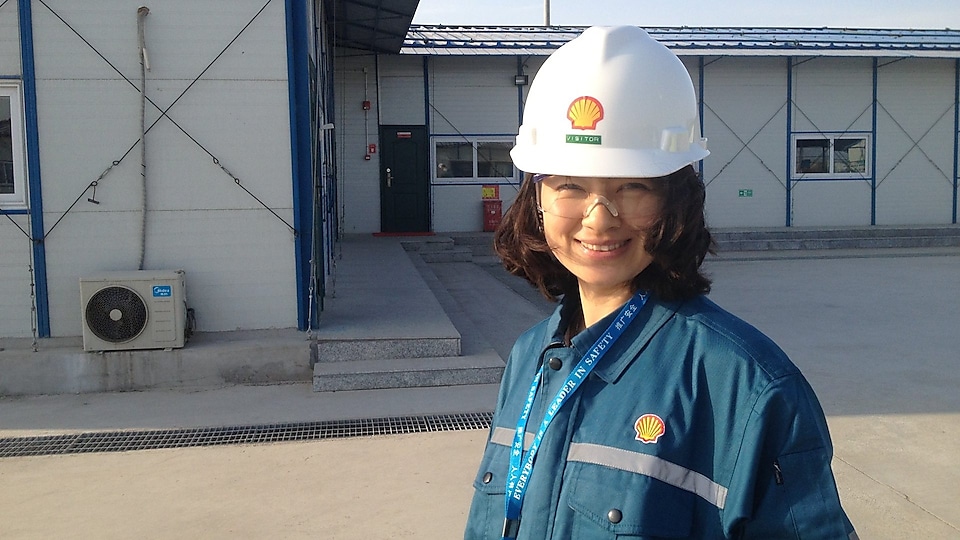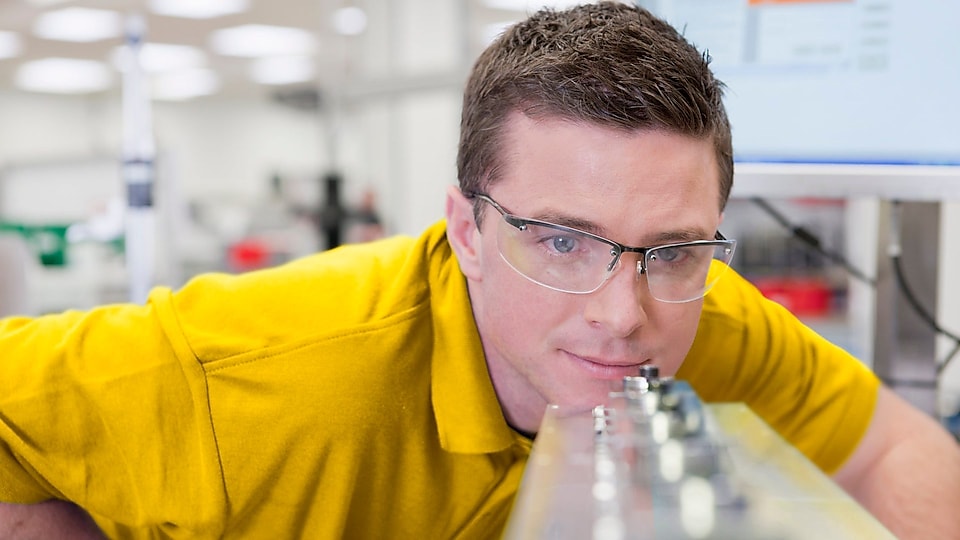
Charting the road map
Shell production unit manager Christine Low runs a tight ship with an eye on the future
She may be only three years into her role as manager of a production unit at Shell’s Pulau Bukom Manufacturing Site, but Ms Christine Low is already planning for its future.
Says Ms Low: “My production unit is one of the first in the refinery. On the one hand, we have the pioneer generation of process technicians who will soon retire from service. On the other, we have a huge number of younger process technicians who have just joined us in the past couple of years.”
She leads a team of more than 100 people who make up the production unit of Area No. 2 at the Pulau Bukom Manufacturing Site.
She oversees operations of the unit, which manufactures petroleum products.
In the driver’s seat
Ensuring that she has a road map for her production unit is Ms Low’s chief concern.
She says: “The biggest challenge for my production unit is the transition plan. How do I rally all my frontline leaders to focus on developing the next generation to take over the baton to secure and sustain Bukom’s future?
“I must be the one who looks farther into the future, who draws the road map, or else everyone will be merely reacting to circumstances.”
Training for the future
Training the next generation is part of the future planning.
“We assign senior technicians to coach and mentor their younger colleagues. This transfer of knowledge and skills is critical in developing our talent pool,” says Ms Low.
This arrangement is part of the Process Technician Training Programme (PTTP), which trains new process technicians on safety procedures, operating plant equipment, and other functional skills. Started in 2012, it involves classroom and on-the-job training.
Particularly vital is reinforcing operational discipline to ensure her employees work safe and smart.
Ms Low engages her people in a site-wide programme, Bukom’s Pride In Production. She was one of the leaders who championed this initiative last year.
On the improvements made, she says: “There is now more clarity of roles and responsibilities, work processes and performance standards throughout the whole organisation.”
Evolving role
Rather than working behind her desk, Ms Low adopts a “go and see” working style.
At the plant, she is often spotted walking around the process units and control room, engaging her colleagues in discussions and observing how they work.
She says her 24-year career with Shell has been fruitful.
The chemical engineering graduate from Monash University in Australia joined the company in 1989, spending the next 10 years as a process engineer.
As her career progressed, her role evolved.
At Shell, senior staff are given a change of roles every four years or so.
This has given her opportunities to try new things in her job, expanding her field of knowledge.
In the course of the 12 years she spent in the supply chain side of the business, she has taken on various roles from operations, integration and optimisation, strategy development, supply chain development, implementation to contracts negotiations. She also had the opportunities to be posted overseas to Shell’s head office in The Hague in the Netherlands, Guangdong in China, as well as Hong Kong.
“These roles enriched my understanding of the business side of the petroleum industry,” she says.
Next up for her: a leadership role in manufacturing.
“My exposure to both the technical and business sides, which include operations and strategy, has equipped me with the foundation for leading a business in a very challenging environment,” she says.
One of the few women
She is unfazed about being one of the few women in the male-dominated industry, adding that Shell’s emphasis on meritocracy means she is not disadvantaged because of gender.
“In any case, over the past decade, the company has been making the effort to retain and nurture technical females for leadership positions,” she adds.
To young women mulling over whether to pursue a career in her field, she has this analogy of an engineer’s importance: “Like a doctor who is needed to diagnose and treat the human body, an engineer helps with the technicians to operate and maintain equipment optimally.
“We troubleshoot and resolve issues together and make improvements.”
This article was published in The Straits Times on May 31, 2014. Credit to Singapore Press Holdings.
More in Women in leadership
Looking to change the game
Min Peng enjoys a challenge and it is precisely this trait that inspires her to move out of her comfort zone.
You may also be interested in
Experienced Professionals
Enhance your career development as an experienced professional with Shell and continue on your path to reach your full potential.
Shell Talent Community
Joining the Shell Talent Community is the best way for you to stay informed about global career opportunities in your area of expertise and keep up to date with relevant news and events.
Students and Graduates
Are you a remarkable student or graduate with less than three years’ experience? Join us as we explore and discover better energy solutions together.



